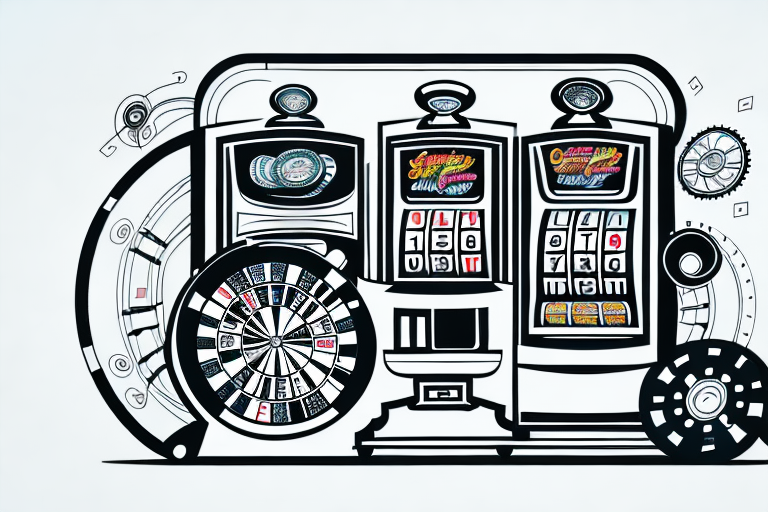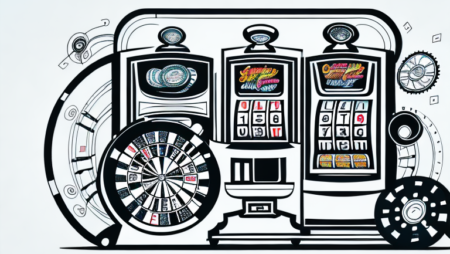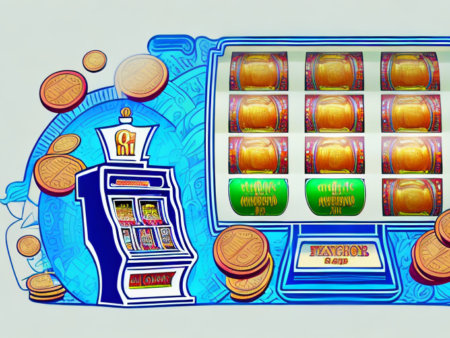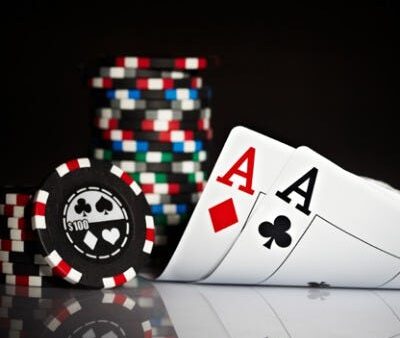

Slot machines are a staple of the casino world, offering players the excitement of flashing lights, exciting sounds, and the chance to win big. But with so many players and so much money on the line, some may wonder if the slot machines they are playing are truly random. In this article, we’ll take a closer look at the concept of randomness, how slot machines work, the history of slot machine technology, and the role of regulations and testing in ensuring fair play for players.
Understanding the concept of randomness
Before we can answer the question of whether slot machines are completely random, we need to understand what randomness means.
What does randomness mean?
At its core, randomness means that the outcome of an event is unpredictable. In the world of gambling, this means that the outcome of each individual spin of a slot machine should be completely unpredictable – in other words, random.
The role of randomness in gambling
Randomness is crucial in gambling because it ensures that no one can predict the outcome of a game or manipulate the results in their favor. In slot machines, randomness ensures that every player has an equal chance of winning, regardless of how long they’ve been playing or how much money they’ve wagered.
However, randomness is not just important in the world of gambling. It is a fundamental concept in many areas of science and mathematics. For example, scientists use randomization in clinical trials to ensure that the results are not biased by factors such as age, gender, or pre-existing medical conditions. Randomness is also used in cryptography to generate secure encryption keys that cannot be easily guessed or hacked.
Randomness can be generated in many different ways. In slot machines, the random number generator (RNG) is used to generate a sequence of numbers that determine the outcome of each spin. The RNG is designed to produce a completely random sequence of numbers, with no discernible pattern or predictability.
However, some people believe that slot machines are not truly random. They argue that the casinos can manipulate the RNG to ensure that players lose more often than they win. While this may be possible in theory, it is highly unlikely in practice. Casinos are heavily regulated and monitored to ensure that their games are fair and random. In fact, many casinos are required by law to publish their payout percentages, which show how much money is returned to players over time.
So, in conclusion, while there may be some debate about the true randomness of slot machines, there is no doubt that randomness is a crucial concept in the world of gambling and beyond.
How slot machines work
Now that we understand the importance of randomness in gambling, let’s take a closer look at how slot machines work.
The mechanics of a slot machine
At their core, slot machines are very simple devices. Each machine contains a set of reels (usually three or five), each of which is covered in symbols. When a player inserts a coin and pulls the lever or presses the button, the reels spin and eventually come to a stop. If the symbols on the reels line up in a winning combination, the player wins a prize.
But what happens when the symbols don’t line up? In most cases, the player simply loses their wager and the machine keeps the money. However, some machines offer a “second chance” feature that gives players the opportunity to spin again for free. This can be a great way to extend your playing time and potentially win big!
The role of Random Number Generators (RNGs)
Behind the scenes, slot machines rely on Random Number Generators (RNGs) to determine the outcome of each spin. RNGs are complex mathematical algorithms that generate a series of random numbers every millisecond. When a player pulls the lever or presses the button, the machine uses the next number generated by the RNG to determine the outcome of the spin.
It’s worth noting that RNGs are completely random and cannot be influenced by outside factors. This means that there is no way to predict the outcome of a spin, no matter how long you’ve been playing or how much you’ve wagered. Each spin is completely independent of the ones that came before it, so there’s always an equal chance of winning or losing.
The impact of payback percentages/RTP
In addition to RNGs, slot machines also rely on payback percentages also referred to Return-to-player rate. Payback percentages represent the amount of the money that a machine pays back to players over time. For example, a machine with a payback percentage of 90% will pay back 90 cents for every dollar wagered over the long term.
It’s important to note that payback percentages are calculated over the long term, so individual players may experience much higher or lower payouts depending on their luck. However, over time, machines with higher payback percentages tend to be more popular with players because they offer a better chance of winning.
Overall, slot machines are a fun and exciting way to gamble, but it’s important to remember that they are completely random and the odds are always in the house’s favor. So, enjoy the thrill of the spin, but always gamble responsibly!
The history of slot machines randomness
The concept of randomness has been a part of slot machine technology for decades. Let’s take a closer look at the history of slot machine randomness.
Early mechanical slot machines
The earliest slot machines were mechanical devices that used springs, gears, and levers to determine the outcome of each spin. These machines were fairly primitive and could be manipulated by players who knew how they worked. Despite this, they were incredibly popular and could be found in bars and saloons across the United States.
Players would insert a coin and pull a lever, which would set the reels in motion. The reels would eventually come to a stop, and the player would win a prize if the symbols on the reels matched up in a winning combination. While these machines were not truly random, they were still a lot of fun to play and offered players the chance to win big.
The introduction of computerized slot machines
In the 1980s, computer technology revolutionized the slot machine industry. Computerized machines were much more reliable and could be programmed to use RNGs to ensure the randomness of each spin. This meant that players could no longer manipulate the machines and that the outcomes of each spin were truly random.
Computerized slot machines quickly became the norm, and they remain the standard in casinos today. These machines are incredibly popular, and players love the excitement of watching the reels spin and hoping for a big win.
Modern-day slot machines technology
Today, slot machines are more advanced than ever. They use sophisticated software and digital displays to give players an immersive and exciting gaming experience. Many machines now feature multiple paylines, bonus rounds, and progressive jackpots, which can offer players the chance to win huge sums of money.
Despite all of these advancements, the importance of randomness remains just as strong as ever. Casinos go to great lengths to ensure that their machines are truly random and that players have a fair chance of winning. This ensures that players can enjoy their gaming experience without worrying about whether or not the machines are rigged.
So the next time you sit down to play a slot machine, remember the long and fascinating history of slot machine randomness. From the early mechanical machines to the modern-day digital versions, these games have always been a source of excitement and entertainment for players around the world.
The role of regulations and testing
Finally, let’s take a look at the role of regulations and testing in ensuring the randomness of slot machines. While many people believe that slot machines are rigged to favor the house, the reality is that there are many measures in place to ensure that the games are fair and random for all players.
Government and industry regulations
Most countries have strict regulations in place that govern the operation of slot machines. In the United States, for example, the Gaming Control Board in each state is responsible for overseeing the machines and ensuring that they comply with state laws. These regulations cover everything from the minimum payout percentages that machines must have to the technical specifications of the machines themselves. For example, in Nevada, slot machines must pay out at least 75% of the money that is wagered on them over the course of their lifetime. This means that, while individual players may experience winning or losing streaks, over time, the machines are designed to pay out a certain percentage of the money that is wagered on them.
Independent testing agencies
In addition to government regulations, many slot machines are also tested by independent agencies to ensure their randomness. These agencies use sophisticated equipment to test the machines and ensure that they are truly random. For example, one such agency, Technical Systems Testing (TST), uses a variety of tests to ensure that the machines are fair and random. These tests include running the machines through thousands of spins to ensure that the results are truly random, as well as testing the machines under a variety of conditions to ensure that they perform consistently.
Ensuring fair play for players
By relying on RNGs, payback percentages, and a variety of other technologies and regulations, slot machine manufacturers and casinos work hard to ensure the fairness and randomness of their games. While individual players may occasionally strike it lucky or unlucky, over the long term, the machines are designed to pay out a certain percentage of the money wagered – and that percentage is truly random. This means that players can trust that they are getting a fair shake when they play slot machines, and that the games are not rigged in favor of the house.
It is worth noting, however, that while the randomness of slot machines is rigorously tested and regulated, there are other factors that can affect a player’s chances of winning. For example, the specific machine that a player chooses to play can have an impact on their chances of winning. Some machines have higher payout percentages than others, and some machines have higher maximum payouts than others. Additionally, the amount of money that a player wagers on each spin can also affect their chances of winning – while betting more money may increase the potential payout, it also increases the potential risk.
Ultimately, while there is no surefire way to win at slot machines, players can trust that the machines are fair and random, and that the games are regulated and tested to ensure that they are not rigged in favor of the house. By understanding the regulations and technologies that are in place to ensure fair play, players can make informed decisions about how and when to play, and can enjoy the excitement and thrill of slot machines with confidence.












